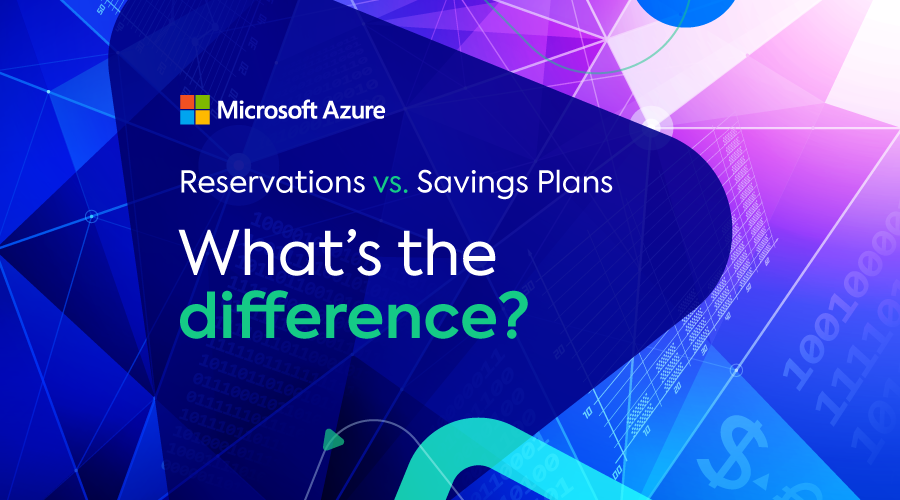
Microsoft launched Azure in 2010 as a direct response to Amazon and Google’s cloud efforts. From humble beginnings as an extension of Windows NT, Azure now supports cutting-edge IT services, including AI/ ML, Big Data, Kubernetes, and more. Recent reports show Microsoft Azure taking more of the cloud market share than ever before.
Like AWS and other cloud providers, Azure offers both reservations, for virtual machines and a variety of other services, as well as Savings Plans. Which one will offer the most benefits for an organization’s cloud strategy? Let’s evaluate the options.
Azure Reservations
Azure Reservations offer customers a way to save on their cloud costs by pre-purchasing resources in advance. With Azure Reservations, customers can reserve virtual machines, databases, and other Azure services for a one- or three year-term. Reservations provide customers with cost predictability, allowing them to budget their cloud spend effectively.
Additionally, reservations offer limited flexibility by allowing customers to exchange or cancel reservations, adapting their resources based on evolving needs while maintaining cost optimization. Reservation exchanges are subject to stipulations such as reservation type, while cancellations are limited to $50,000 reservations in a rolling 12-month period.
Azure Savings Plans
To keep parity with AWS offerings and provide customers with a straightforward and flexible way to save on compute services, Azure Savings Plans were released in late 2022. With Savings Plans, Microsoft customers commit to spending a fixed hourly amount for one or three years and can save up to 65% compared to pay-as-you-go pricing.
Savings Plans maximize flexibility by allowing customers to apply their commitment across multiple services, including virtual machines, Azure SQL Database, Azure Cosmos DB, and more. Those options enable businesses to achieve long-term cost savings while still retaining the ability to scale their usage based on fluctuating demands.
Evaluating the benefits of Azure Reservations vs. Savings Plans
Many believe the choice between Azure Savings Plans and Reservations depends on whether an organization is interested in prioritizing the flexibility or granular control of their reserved commitments. When comparing Microsoft Azure Savings Plans and Reservations, both provide cost savings but have different ways of doing so.
Azure Reservations provide more granular control over specific resources, allowing customers to reserve capacity for specific VM sizes or database types. This control makes reservations a better choice for businesses with predictable workloads and stable resource needs.
On the other hand, Azure Savings Plans offer greater flexibility in the commitment amount, allowing customers to apply their savings across a variety of services. This makes Savings Plans well-suited for businesses with dynamic workloads and resource requirements.
In many cases, the best solution for a company is a portfolio of commitments that combines both savings methods.
Save on Azure Reservations and Savings Plans with Eco for Azure
Eco helps businesses maximize savings and free up their IT team’s time with fully managed cost optimization for Azure Savings Plans and Reservations.
Are you interested in reducing costs on Azure commitments and reducing the burden of manual management? Speak with an expert to see how much you can save.

